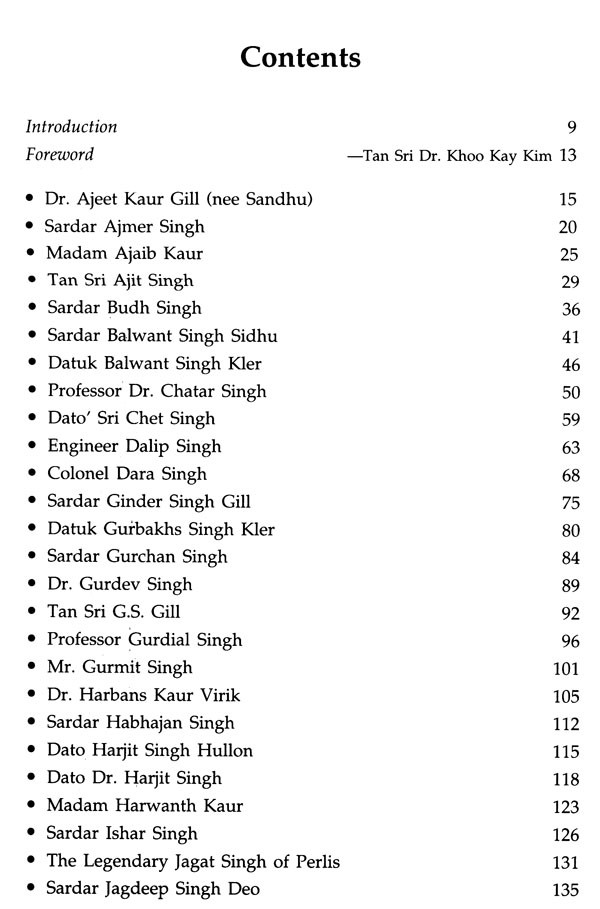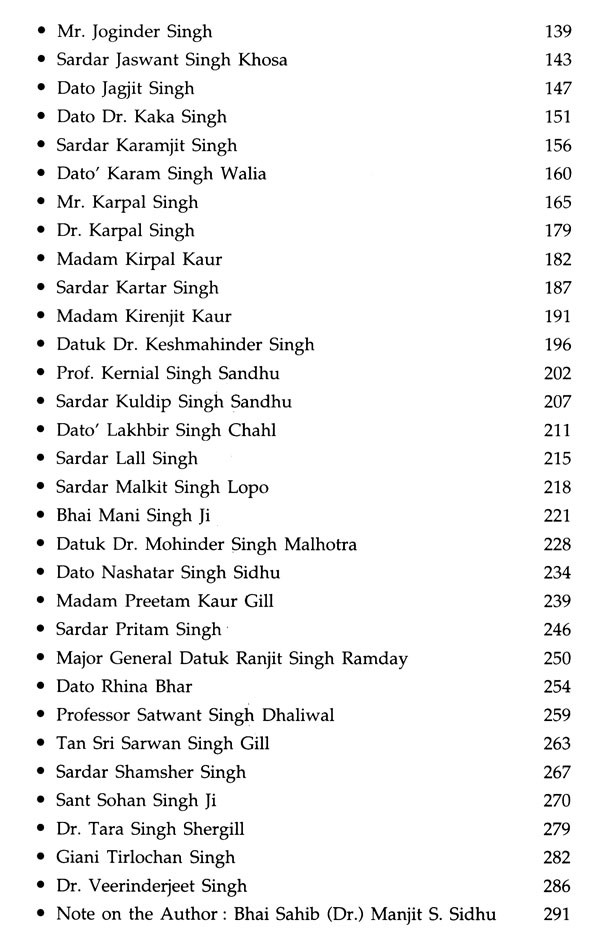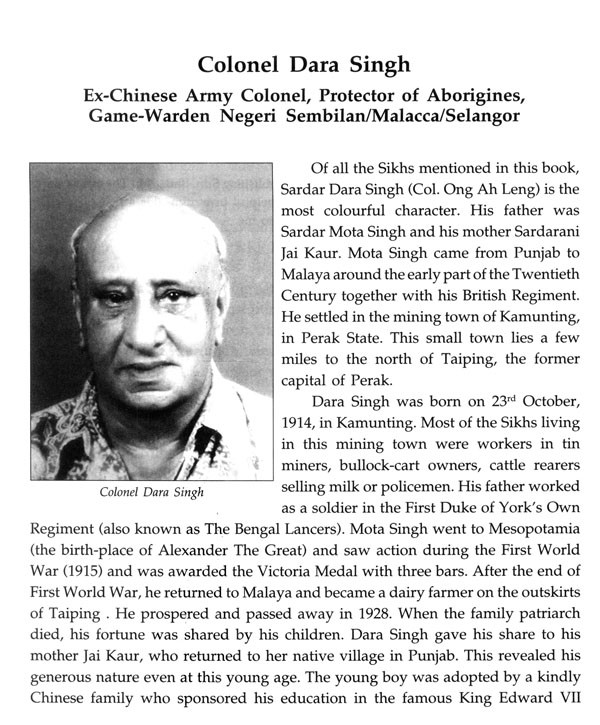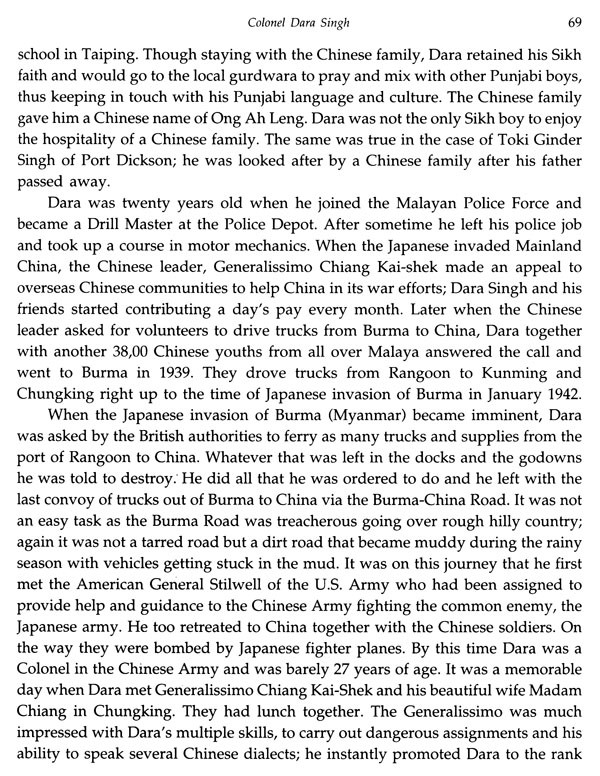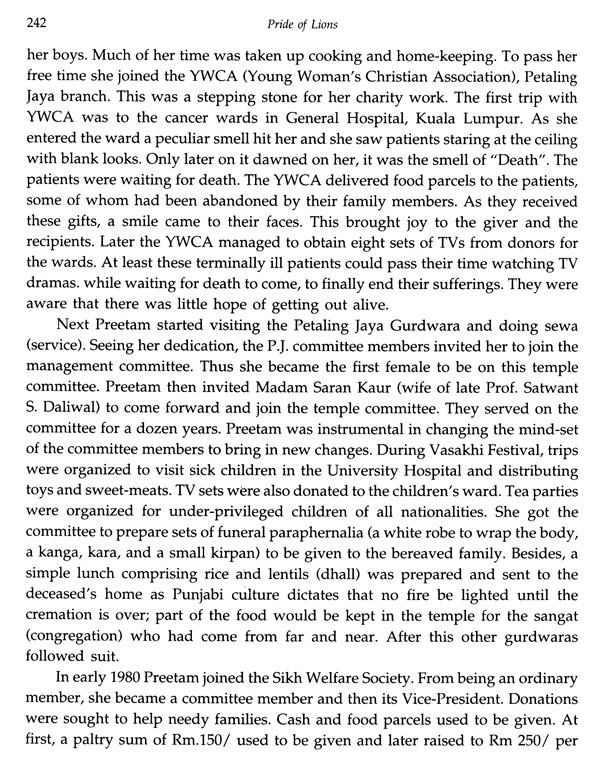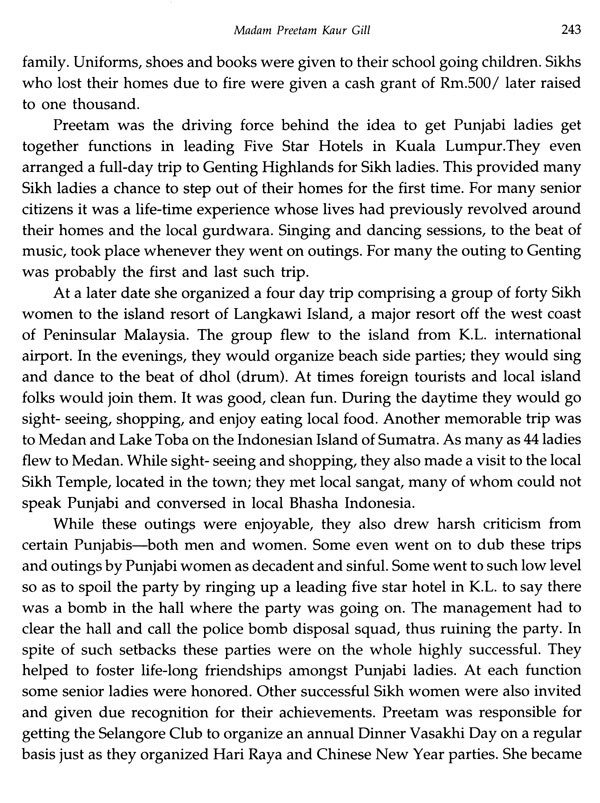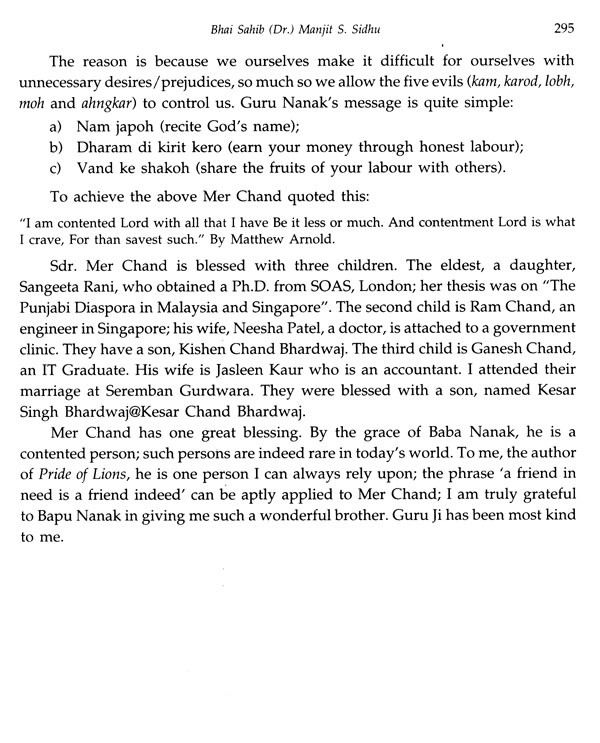Foreword Although Malaysians are well aware of the presence of the Sikhs in this country, few have any clear knowledge that the Sikhs really are. Often they are mistaken for "Bengalis (who are inhabitants of Indian West Bengal and Bangladesh). In the past, they were always linked to the police force as indeed they were when they first arrived in this country, brought by Capt. Speedy to help bring order to the territory of Larut in Perak where tin mining had taken off by the mid-19 century and the Chinese population had out-numbered even the local Malays Just as the British had depended upon the Sikhs to help them take control of India, in the Malay Peninsula too, when the British progressively took control of the Malay states, they needed the services of the Sikhs to maintain control over the local population as well as the Chinese secret societies. That the Sikhs originated from Punjab is not well known in this country. Even less known is the fact that the majority of Pakistanis today are descendants of Punjabis who embraced Islam.
The Sikhs of course embrace Sikhism and originate from different regions of Punjab (Majha, Doaba and Malwa). Although the majority were brought here to serve in the police force and the army, in due course many of them branched off into other occupations. They could be found among members of the clerical service, the teaching profession and many in modern times were doctors and lawyers. Even less clear to most Malaysians is that there were many Sikh money-lenders and bullock-cart drivers in the pre-independence era. Money-lending trade was not monopolized by the Chettiars from Southern India.
Like members of other communities, many of the Sikhs became very well- known in the society. For a while probably the best known among them was "Gurchan Singh: the Lion of Malaya. "This was indeed the name of his book. It was the biography of someone who served the British well during World War II. But perhaps the best known of the Sikhs were those who excelled in sports.
Introduction My interest in Sikh Studies began in 1975 following the demise of my good father, a Gursikh, who had participated in the Jaito and Guru-ka-Bagh Morchas in the 1920s. All those who took part in the Jaito-da-Morcha were deemed Freedom Fighters' by the Indian leader, Mahatma Gandhi. The passing of my father Bhai Karpal Singh sent a shock wave in me. I had been complacent and had not recorded the family history. With that came the realization that the history of Sikh emigrants from Punjab to South-East Asia would soon be forgotten. Thus began my research into Sikhs in Malaysia and later extended to Sikhs in Kenya (when I went to Ahamadu Bello University in Nigeria, as Senior Lecturer). On my return holidays to Malaysia I would stop in Nairobi and stay at the Singh Sabah Gurdwara and collect available data about Kenyan Sikhs. At the same time 1 travelled to all major towns and interviewed scores of Punjab-born Sikhs who had gone to work in East Africa. Later when I returned to Malaysia from my African tour, I had the opportunity of going to Thailand as Visiting Professor and work in the Asian Studies Institute located in Chulalongkorn University during my sabbatical leave in 1992. I took this opportunity to do research on Thai Sikhs and came out with a book Sikhs in Thailand, published by the Asian Studies Department.
In 2013 my interest was aroused once more when I met the custodians of Delhi Gurdwaras in Janam Asthan Gurdwara in Nankana Sahib, Pakistan. They requested me to do a research about Sikhs in Afghanistan (later they said it would be better to do a study on Pakistani Sikhs), and assured me of full financial support. Trusting them I embarked on my latest project 'Sikhs and Sikh Institutions in Pakistan'. When I approached Paramjit Singh Rana for funds for the project, he said to call him after the Delhi elections. When I called him on 6th December, 2014, he curtly told me the project was off. Anyway, with the grace of Baba Nanak, I completed the project working on a shoe-string budget, using my own meager resources.
**Contents and Sample Pages**
